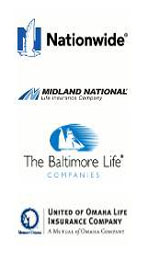Health Classifications Life Insurance Applications
The better your rating, the lower your premium.
The Top 4 Ratings Heath Classifications:
- Preferred Plus – The best category (only about 5% of people qualify for Pref. Plus)
- Preferred – Second best, an excellent rating
- Standard (Regular) Plus – Better than average health
- Standard (Regular)– An applicant in “Average” health and no other risk factors may fall into this class
These top four health classifications are generally given to those individuals in average or better than average health with no other risk factors such as tobacco use or hazardous hobbies, or travel.
Smokers: Use of tobacco products in the past 12 months.
- Preferred Smoker
- Standard Smoker
Table Ratings and Higher Premiums
Substandard – Below average life expectancy, high risk life insurance. Companies can still approve you, but at a higher premium because of the risk of an earlier death.
Most companies have 8 to 10 table rates usually referrenced to by letters or numbers. For example, if a client was approved one level below Standard, this would be called Table A or Table 1. Two levels below Standard, Table B or Table 2.
Instead of declining an applicant for coverage altogether due to a particular health condition, a table rating allows the insurance company to offer coverage, but at a higher amount of premium that is based on the person’s health. Generally, you would pay the standard premium plus 25% additional for each table rating. Table 2 or B would be 50% + the standard premium, Table 3 or C would be 75% + the standard premium.
What Factors Affect Your Health Classifications?
It depends. Every life insurance company has different underwriting guidelines that determine what risk class an individual qualifies for. The company will look at your personal medical history, smoker status, height/weight profile, results of the medical exam, your family medical history (e.g. cancer or heart disease before age 60 in the immediate family), motor vehicle record (reckless behavior), and any hazardous activities you may participate in (such as aviation, scuba diving, drag racing, etc), occupation or travel outside the U.S.
Downgrades are more likely for Diabetes, High Blood Pressure, High Cholesterol and being overweight. Most Companies won’t penalize you for minor health issues that occurred 10 years ago, even if you were hospitalized.
Again, the Insurance Underwriter is adjusting for the risk of an earlier death and earlier payout of the Death Benefit.






